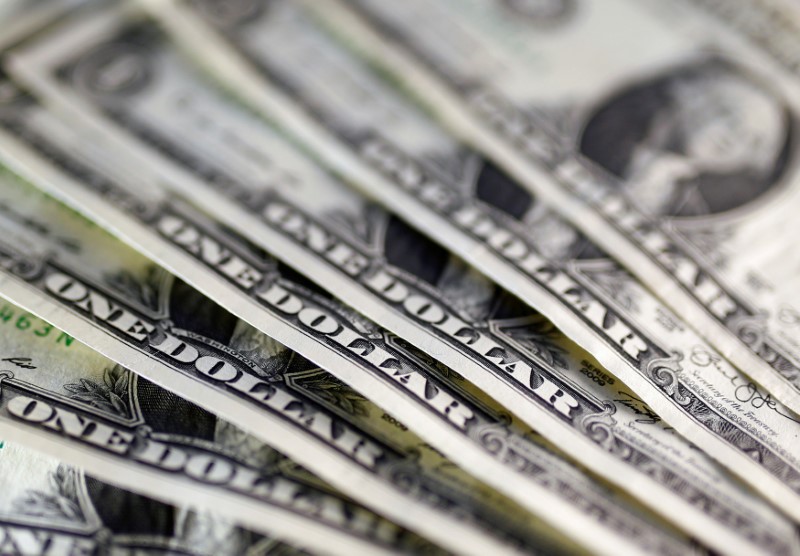Gold prices edge up after sharp losses; US inflation data awaited
* Most major currencies fall vs dollar, including yen
* U.S. non-farm payrolls due later in the day, expected to
be weak
* Graphic: World FX rates in 2020 https://tmsnrt.rs/2RBWI5E
(Updates prices, adds context on dollar, comment, chart)
By Olga Cotaga
LONDON, Aug 7 (Reuters) - The U.S. dollar rebounded whilst
other major currencies weakened on Friday after President Donald
Trump took steps to ban transactions with the Chinese owners of
two popular mobile apps.
The U.S. dollar is rebounding after a persistent sell-off in
the past few weeks on the back of a combination of rising U.S.
coronavirus infections, a steady decline in Treasury yields, and
a lack of consensus in Washington over additional fiscal
stimulus.
Trump on Thursday issued an executive order banning
transactions with ByteDance, the Chinese company that owns the
video-sharing app TikTok, and with Tencent Holdings Ltd
0700.HK , which owns the WeChat messaging app.
The U.S. dollar strengthened even though data on employment
in the United States is expected to come in weaker, but with
expectations being so low, any surprise to the upside would push
the dollar higher, analysts said.
"What matters now for currencies is still the economic
outlook," said Esther Maria Reichelt, currency analyst at
Commerzbank, adding that key is still which countries are
emerging after coronavirus as winners.
"It's easy for the U.S. dollar to find reason to appreciate
again," Reichelt said.
Non-farm payrolls due later on Friday are widely expected to
show U.S. jobs creation slowed in July from the previous month,
indicating a resurgence in coronavirus infections is undermining
the economic recovery there.
The euro retreated from its highs and last traded down 0.5%
at $1.1822 EUR=EBS , while the British pound also fell 0.4% to
$1.3091 GBP=D3 .
Other major currencies also weakened against the dollar,
including the Japanese yen, which last traded weaker versus the
U.S. currency at 105.67 JPY=EBS .
The Australian dollar fell, hurt by concerns about worsening
U.S.-Chinese relations and the Reserve Bank of Australia's
downbeat assessment of the local economy. It was last down 0.5%
at 0.72 AUD=D3 .
The resurgent dollar is showing that any shift in investors'
appetite for risk can quickly revive demand for the U.S.
currency.
U.S. Republicans and Democrats have so far failed to reach
an agreement on the cost of fiscal stimulus measures that many
investors say is necessary to prevent the economy from losing
more momentum. The dollar is at its most oversold level in over 40 years,
investment bank Morgan Stanley said on Friday, adding it had now
shifted from its dollar-bearish stance and turned "tactically
neutral" on the U.S. currency. Implied volatility gauges in the foreign exchange market
captured by the Deutsche Bank index .DBCVIX rose back to the
April levels, indicating traders were bracing for future price
swings.
Bank of America analysts said that realised volatility - the
actual move in prices - was at its highest since 2009. They said
they have hedged U.S. election risks in November by buying
six-month USD/CHF options. They have also bought six-month
EUR/AUD options to protect against heightened U.S.-China
tensions.
<^^^^^^^^^^^^^^^^^^^^^^^^^^^^^^^^^^^^^^^^^^^^^^^^^^^^^^^^^^^
Dollar https://tmsnrt.rs/2XBYQ2m
^^^^^^^^^^^^^^^^^^^^^^^^^^^^^^^^^^^^^^^^^^^^^^^^^^^^^^^^^^^>
